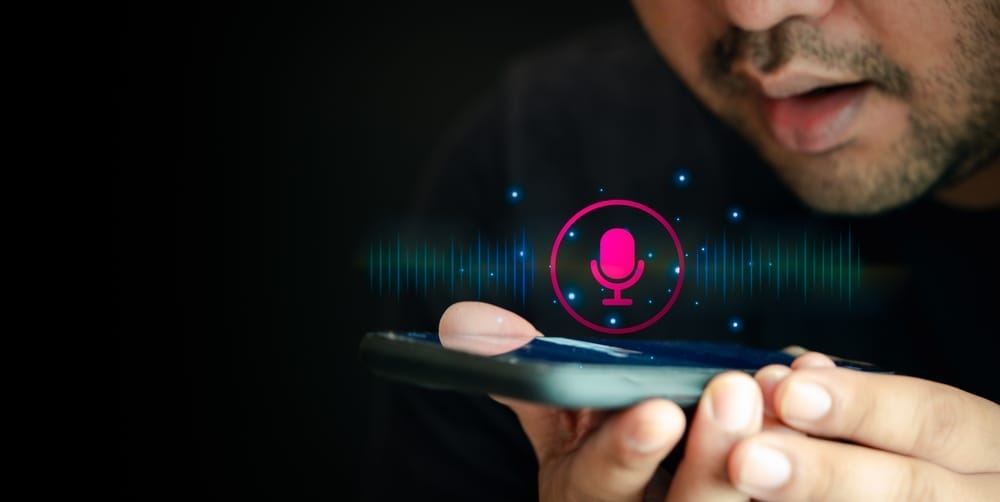In the modern digital world, microphones aren’t just for calls—they’re data gold mines, and apps are eager miners with very polite, very legal permission slips.
Below are ten types of privacy policies that commonly include terms allowing background listening, voice capture, sound analysis, and sometimes even ongoing recording. No need to panic—but definitely time to pay attention.
1. Voice Assistant Companion Apps
Voice assistant companion apps often require microphone access for hands-free commands, wake words, and dictation features. While that sounds harmless, the privacy policies of many voice-powered apps include clauses allowing “audio data collection” even when you aren’t actively using the voice feature. They justify this by saying they are “improving accuracy,” which often means constant passive listening for trigger words. Many users don’t realize that this means short audio clips may be stored and reviewed manually by contractors or machine-learning systems. If you’ve ever wondered why your assistant seems to “learn” your voice, it’s because it’s literally listening to it—regularly.
2. Smart Home Hub Controllers
Smart home hub apps that manage connected speakers, thermostats, and security devices often have consent to collect voice and ambient audio. The reasoning is that they need to process commands and detect system alerts, but this sometimes extends to ongoing sound monitoring. The privacy language frequently includes statements about “capturing audio signals to improve feature performance.” This phrasing is intentionally vague, which gives these apps broad recording capability. If your home is full of “smart” things, the hub app is potentially the smartest thing in the room—and not always in a good way.
3. Social Media Messaging Apps With Voice Note Features
Social platforms that allow voice messaging or audio posts typically request microphone access and may also analyze audio data for content moderation and advertising. Some privacy policies explicitly state that the app may “retain or analyze audio recordings” to enforce safety rules or train speech recognition systems. Since these platforms already collect huge amounts of behavioral data, adding audio only deepens the profile they build. The recording may not be constant, but the stored content can linger much longer than you expect. Once your voice is in their system, it becomes part of your digital footprint.
4. Video Conferencing Platforms
Video chat apps require microphone and camera access by design, but their privacy policies often include surprising permissions related to analytics and diagnostics. Some can store snippets of audio to improve call quality algorithms or detect background noise patterns. While these features sound helpful, they mean that private conversations can become training data without your explicit awareness. Even if recordings aren’t being saved permanently, temporary storage still counts as access. The real issue is that these policies often use friendly language to conceal extensive data flexibility.
5. Gaming Apps With Voice Chat
Online games with voice communication sometimes log audio for moderation, anti-cheating enforcement, or community safety. While that sounds noble, the policy language often gives apps the legal right to capture entire conversations. The voice chat isn’t always limited to gameplay either: some platforms keep the microphone active whenever the app is open. The user is rarely aware of when the recording starts or stops, because the indicators are minimal. The result is that casual gaming banter can accidentally become stored digital content.
6. Keyboard And Input Enhancement Apps
It might seem strange that a keyboard app would need access to your microphone, but plenty do—especially those offering voice typing or speech-to-text input. These apps often include privacy clauses allowing ongoing “acoustic processing” to improve dictation accuracy. This can include temporary background listening to detect user attempts to initiate speech input. Because keyboard apps have deep access to everything you type, mixing microphone access into the deal can create a powerful data collection channel. It’s the digital equivalent of giving someone both your house keys and your diary.
7. Fitness Coaching Apps With Audio Feedback
Fitness and workout apps sometimes include motivational coaching through audio cues and, therefore, request microphone access to provide feedback on breathing, pace, or form. Their privacy policies often mention “biometric acoustic analysis,” which can include continuous listening during workout sessions. Some apps use this data to adjust intensity—but the audio recordings can also be saved and repurposed. The collected sounds may include background voices, conversations, or household noise. If you’ve ever spoken to yourself mid-workout, just know your app might have heard every pep talk.
8. Mobile Browsers With Voice Search
Mobile browsers that promote voice search functions often include terms that allow them to collect audio snippets, enhancing accuracy and tailoring results. These browsers may activate listening faster than you expect, because they’re designed to detect intentional commands. The privacy policy usually states that audio “may be transmitted to servers for processing.” This processing can involve multiple third-party systems, meaning your voice may travel far beyond your device. It’s not that your browser wants to spy—but it’s certainly ready to if the environment allows.
9. Shopping Apps With Smart Search And Product Scanning
Some shopping apps include voice-enabled product search tools, and their privacy terms allow microphone access to support this. However, the policies often include permissions for analyzing “ambient audio,” meaning background sounds might also get captured. They may use this audio environment data to personalize ads or detect location-based purchase trends. This means your shopping preferences aren’t just recorded—they’re inferred from the sound of your surroundings. If you’ve ever joked about wanting something and then saw an ad for it, this category feels suspiciously familiar.
10. Music Recognition And Sound Tagging Apps
Apps that recognize music, identify sounds, or provide audio tagging tools clearly need microphone access. But their privacy policies often state that they may analyze “continuous audio input” until a match is found. In many cases, these apps store captured audio to improve recognition databases. The result is that they operate like quiet room monitors, always on standby. Even if you trust them, the amount of audio they handle can be larger than you’d ever guess.
Your Microphone Is More Valuable Than You Think
The common thread across these apps is not malicious intent—it’s data appetite. The more audio information they have, the more personalized, predictive, and profitable their products become. Most of these permissions are technically optional, but they’re often bundled into core features that encourage users to accept without thinking. If you’ve ever wondered why your phone seems to “know” you a little too well, now you know where that awareness comes from.
Have you noticed an app acting suspiciously or overly attentive? Share your experiences, stories, questions, or theories in the comments below.
You May Also Like…
- 8 Fitness Trackers That Have Been Flagged for Privacy Issues
- 10 Privacy Policies That Let Apps Record You Anyway
- Protect Their Future: 7 Legal Loopholes Protecting Your Child’s Privacy Online
- 6 Affordable Fitness Clubs in Denver That Are Worth Signing Up For
- The Death of Privacy in American Cities Has Already Begun







